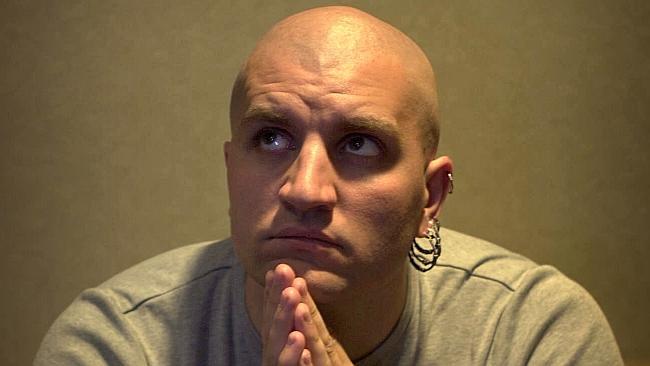China Mieville masters short form in Three Moments of an Explosion
This new short-story collection offers a dazzling portrait of the breadth and power of China Mieville’s fiction.

Somewhere in the middle of China Mieville’s thrilling new collection, one of his narrators pauses to reflect that “we need a new conjunction, a word that means ‘and’ and ‘but’ at the same time”. It’s a moment that seems to encapsulate something essential about the English author’s fiction, how it disturbs the consensual reality we inhabit by straining at the confines of language, distorting it into unsettling new shapes, new meanings.
This quality is visible in the generic restlessness of Mieville’s astonishingly inventive novels, their tendency not just to slam together seemingly disparate genres (Iron Council combined the fantastic with elements of the western, while The City & the City was like an alternative reality spin on John le Carre’s early novels and the police procedural) but to mark out entirely new ones (his second novel, Perdido Street Station, is generally regarded as having given rise to the “new weird” genre). But it’s equally present in Mieville’s prose, the arcane neologisms and complex constructions that lend the surfaces of his fiction an alien glitter.
Given the scale and density of Mieville’s novels, their Malthusian tendency to intellectual and imaginative overpopulation, their author may not seem particularly suited to the short form. And indeed, while his one full-length book of shorter work to date, Looking for Jake (2005), featured several deeply impressive stories, not least the terrifying postmodern ghost tale The Ball Room, which takes place in an Ikea store, as a whole it only occasionally scaled the heady heights of his longer work.
By contrast Three Moments of an Explosion is a book characterised not just by the brilliance and variety of the ideas about which it is built, but by the sense the stories it brings together are not mere occasional pieces, but fully and often frighteningly densely imagined works of fiction.
In places the results capture a reality disturbed by the sudden irruption of the strange or the surreal, as in Covehithe, where a story of a father who takes his daughter to witness the oil rigs that have come to life and started crawling out of the ocean “like crippled Martians” also offers an echo of the strange combinations of the mechanical and the biological that populate Mieville’s early novels.
Elsewhere the results are frankly terrifying, as in The Dowager of Bees, in which a card shark describes the appearance of unknown cards in the decks of poker games, creating hands that impose obligations on the players; or Sacken, which describes a haunting that becomes first a disappearance and then something far worse; or After the Festival, in which the heads of animals butchered as part of a street party become bonded with the revellers who don them.
Perhaps not surprisingly there are also pieces that do away with the strictures of the short story form almost entirely: the title piece, for instance, which opens (in an ironic salute to the anti-corporate, anti-capitalist thrust of the book as a whole) with “the demolition is sponsored by a burger company”, before unfolding into an account of a sort of temporal urban exploration, or “extreme squatting”, in which a group of revellers, their minds lucidly and receptive on ecstasy, chase through the time-slowed process of the destruction of a condemned building.
Sleek, dangerous, oddly affecting, it’s a piece whose shift from the cool vernacular and sleekly science fictional concept of technologically enhanced disaster tourism in the early paragraphs to the final image, of the ghost of the explosion’s “slow coiling and unfolding” in the empty lot, also seems to capture something of the way the sense of alienation that lies at the heart of so many of the stories degrades into a sort of sadness that is no less disquieting than the more overt horrors on display.
In isolation any of the stories in Three Moments of an Explosion would be impressive, but taken as a whole the collection offers a dazzling portrait of the breadth and power of Mieville’s fiction. Indeed there are places where the stories feel less like fiction than glimpses of an alternative reality, a place where the madness and horror that lurks beneath the surface of our everyday existence has begun to obtrude into the world, rather like the empty lava casts of the dead discovered outside an ancient Roman town in In the Slopes, “anti-corpses” that contain the ghostly shapes not of humans, but of alien creatures with intricate eyes, spiralling bodies and many limbs.
James Bradley’s new novel, Clade, is published by Hamish Hamilton.
Three Moments of an Explosion: Stories
By China Mieville
Macmillan, 451pp, $29.99



To join the conversation, please log in. Don't have an account? Register
Join the conversation, you are commenting as Logout